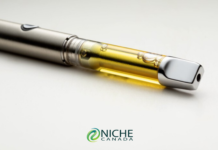COLUMN BY NICHE CANADA
Federal Finance Minister Bill Morneau tabled his fourth budget on March 19 — the Liberal government’s final one before the next election in October.
The plan includes $22.8 billion in new spending over the next five years and touched on many middle-class issues, including housing affordability, pharmacare and seniors’ issues.
The budget also included two key announcements regarding cannabis, including a change to the tax structure around new categories of cannabis products. Right now, cannabis products are subject to a 10 per cent excise tax on each gram or gram-equivalent, or $1 per gram — whichever is higher — regardless of THC content.
For most products, namely fresh and dried cannabis, and seeds and seedlings, there will be no changes to the current excise duty framework. However, for cannabis edibles, cannabis extracts (which will include cannabis oils), and cannabis topicals, excise duties will be imposed on the quantity of THC contained in a product. The government is proposing a THC-based excise duty rate of 1 cent per milligram of total THC.
Products containing cannabidiol (CBD), the non-psychoactive component in cannabis, and trace amounts of THC are exempt from the excise tax. This could provide an incentive to producers to increase the variety of CBD-based products that come to market this October.
The government says the new rules are meant to simplify how these taxes are calculated, and ease compliance issues that producers have encountered with respect to cannabis oils. The taxes apply to both medicinal and recreational cannabis products.
The proposed measure will come into effect on May 1, 2019, and will not affect the federally administered coordinated revenue-sharing agreements reached with most provincial and territorial governments, and is not expected to materially change the overall projected excise duty revenues presented in Budget 2018.
Groups like Canadians for Fair Access to Medical Marijuana (CFAMM) were hoping the budget would include a break for Canada’s 300,000 licensed medical cannabis users. Unlike other prescribed medicine, medical cannabis is subject to sales tax and the 10 per cent excise tax.
READ MORE: ‘Don’t Tax Medicine’ campaign launched seeking end to medical marijuana taxation
They have been petitioning the federal government to make medical cannabis tax exempt, in line with all other prescription medicines.
And, while the budget did not include a tax exemption policy, it did slightly ease the burden of patients with a prescription for medical cannabis — they will now be eligible for a medical expense tax credit. This measure will apply to expenses incurred on or after October 17, 2018.
CFAMM says they are “disappointed that the Government of Canada has included both sales and excise taxes on medical cannabis in the federal budget.
The organization’s founder, Jonathan Zaid, responded by saying that “while Budget 2019 brings Canada closer to pharmacare, medical cannabis patients continue being treated differently when it comes to unjust taxes on their medicine. In an election year it’s more important than ever to continue advocating against tax on medicine.”



















